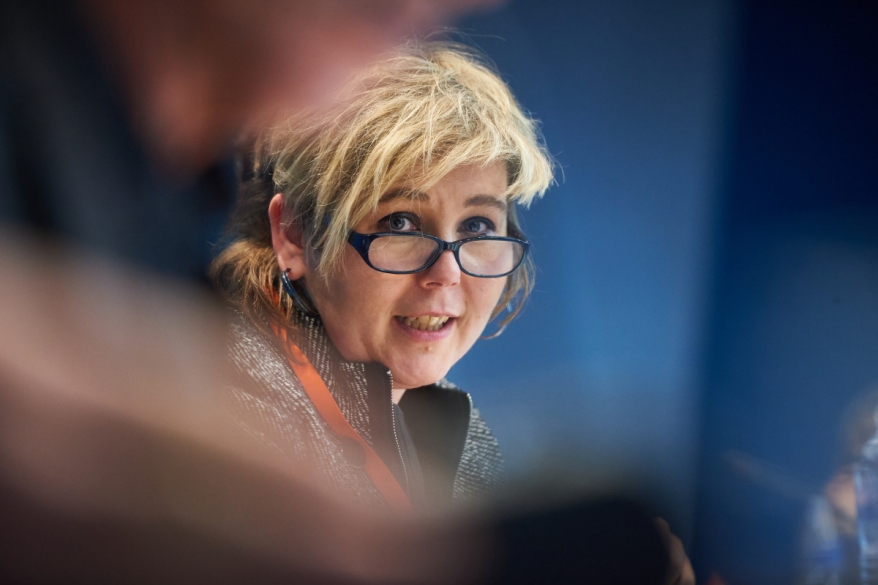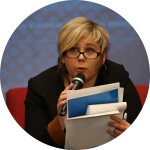What is the Conference of International Non-Governmental Organisations (INGOs)? What are its main goals?
The Conference of INGOs represents civil society in the Council of Europe (CoE). It was established in a historical process as a result of the evolving relations between the Committee of Ministers (Council of Europe's decision-making body) and civil society since 1952. In 2003, the Committee of Ministers recognized the Conference of INGOs by awarding it participatory status in the CoE. The main goals of the Conference are to represent civil society organisations, strengthen the position and interests of each INGO member and allow civil society organisations to interact with the representatives of the governments, parliaments, local government, and with other NGOs.
What is the role of academics in the Conference and the Council of Europe?
The CoE interacts with academics through different intergovernmental committees or CoE departments and divisions. The officials representing governments often have an academic background or they are academics appointed by governments. In the Conference of INGOs, academics may be representatives for NGOs and have to be independent from governments.
To be more effective, NGOs advocative actions must be based on scientific evidence. Thus, the effort of individual researchers and their associations is invaluable: they can help civil society and NGOs to adopt an evidence-based approach. Scientists and researchers have also an important role to play in the political decision-making, advocating for science and academic freedom. The Conference of INGOs is a perfect arena for that. For example, the Conference created an Expert Council on NGO Law in 2008 with academics with a strong legal background.
How can ECRs voice their concerns about the growing threat to academic freedom in Europe?
I believe that academic freedom should be one of the topics to discuss within the internal committees of the Conference of INGOs, such as in the ‘Human Rights’ or ‘Education and Culture’ Committees. Members of those committees can start such a debate.
Moreover, each INGO member of the Conference of INGOs can propose a topic to the Conference bodies if they wish to take a position on a specific topic. Such a proposal could be included in the three-year action plan.
The Conference can draft and adopt a common recommendation, resolution or both. NGOs should also advocate and implement changes locally, nationally or in collaboration with CoE bodies or parliamentarians. If the issue is “politically hot”, it is also easier to raise awareness about it during a one-hour side event when the Parliamentary Assembly of the Council of Europe (PACE) or the Congress of Local and Regional Authorities sessions are held.
You often talk about a threat of the gradual closure of civic space. Are you concerned about such a phenomena for early career researchers (ECRs)?
Surprisingly, such a closure comes from academics who restrict themselves. As an academic, I see that some people, depending on the country where they work, have a problem to publicly speak about their civic engagement as academics. They argue that academia should be neutral and not engaged in social or civil activism. For me, this is a false debate. Every academic is also a free person and has the same rights to speak freely as any other citizen.
What is more, the preservation of civic space is also in academia's best interest. If researchers cannot engage in civic activities when their rights and freedoms are threatened, academics will not be able to fulfil their careers. Academics need to understand that shrinking civic space threatens the right to freedom of association, which is one of the fundamental rights. What is in play is not only the right to register an association, but also the freedom to participate in public affairs. Public debates should be informed so that citizens can take decisions based on evidence delivered by experts in specific topics. Therefore, it is the duty of experts, including academics, to make information accessible even if the information doesn’t follow the political mainstream or dominating ideology. For this reason, experts and academics must enjoy their freedom of expression, including publishing the information in places accessible to everyone (open access).
Eurodoc has a participatory status at the Conference of INGOs since 2014. Eurodoc is also active on other levels of the Council of Europe, including Steering Committee for Education Policy and Practice (CDPPE). Farouk Allouche (representative), Auréa Cophignon and Beata Zwierzynska participate in the sessions on behalf of Eurodoc.
The interview was conducted by Beata Zwierzynska, Eurodoc General Board Member.


